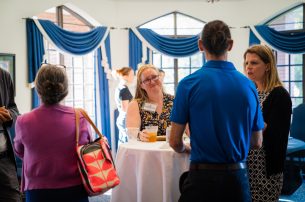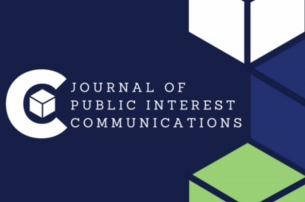New Guide for Communicating the Complexity of Climate Change and Displacement
Displacement is fiercely complex. So is climate change. Explaining how those factors intertwine requires an array of legal and scientific jargon that obscures the suffering experienced by people caught at their intersection. To help, University of Florida Center for Public Interest Communications (CPIC) and the UN Refugee Agency Innovation Service have partnered to a new actionable guide.
Featuring a customized version of CIPC’s Six Imperatives for Changemakers℠ framework, the guide is rooted in behavioral, cognitive and social science for communicating about climate change displacement—one of the most critical and complex topics facing the humanitarian sector .
The guide breaks the framework into five short chapters. As detailed below, each provides an overview of the science, bright spots from the field and recommendations for applying the framework for possible use in your own work.
Make Room for the Most Affected
A community-led approach to storytelling in which people share their own experiences can reduce the potential for negative and harmful stereotypes.
Use Visual Language
Leading with abstract language leaves room for harmful assumptions.To help people understand, engage and remember, use concrete visual language.
Tell Stories
Displacement is complex. Storytelling is the best tool we have to build understanding and engagement.
Use Emotion with Intention
Emotions influence our willingness to act. Different emotions lead people to engage in different actions. Elicit the right emotions with intention to inspire action.
Step Into the World of Your Community
We each have different worldviews. By connecting to the values people hold dearest, we can engage people in complex issues.
This special publication is part of a partnership between the UN Refugee Agency Innovation Service and the UF Center for Public Interest Communications. In an effort to move past communication strategies that simply raise awareness of an issue, this partnership aims to connect those working in the humanitarian sector with applicable insights from behavioral, cognitive and social science to make a lasting difference on the issues that matter most. Read more at The Arc.
Posted: May 2, 2019
Category: Uncategorized


